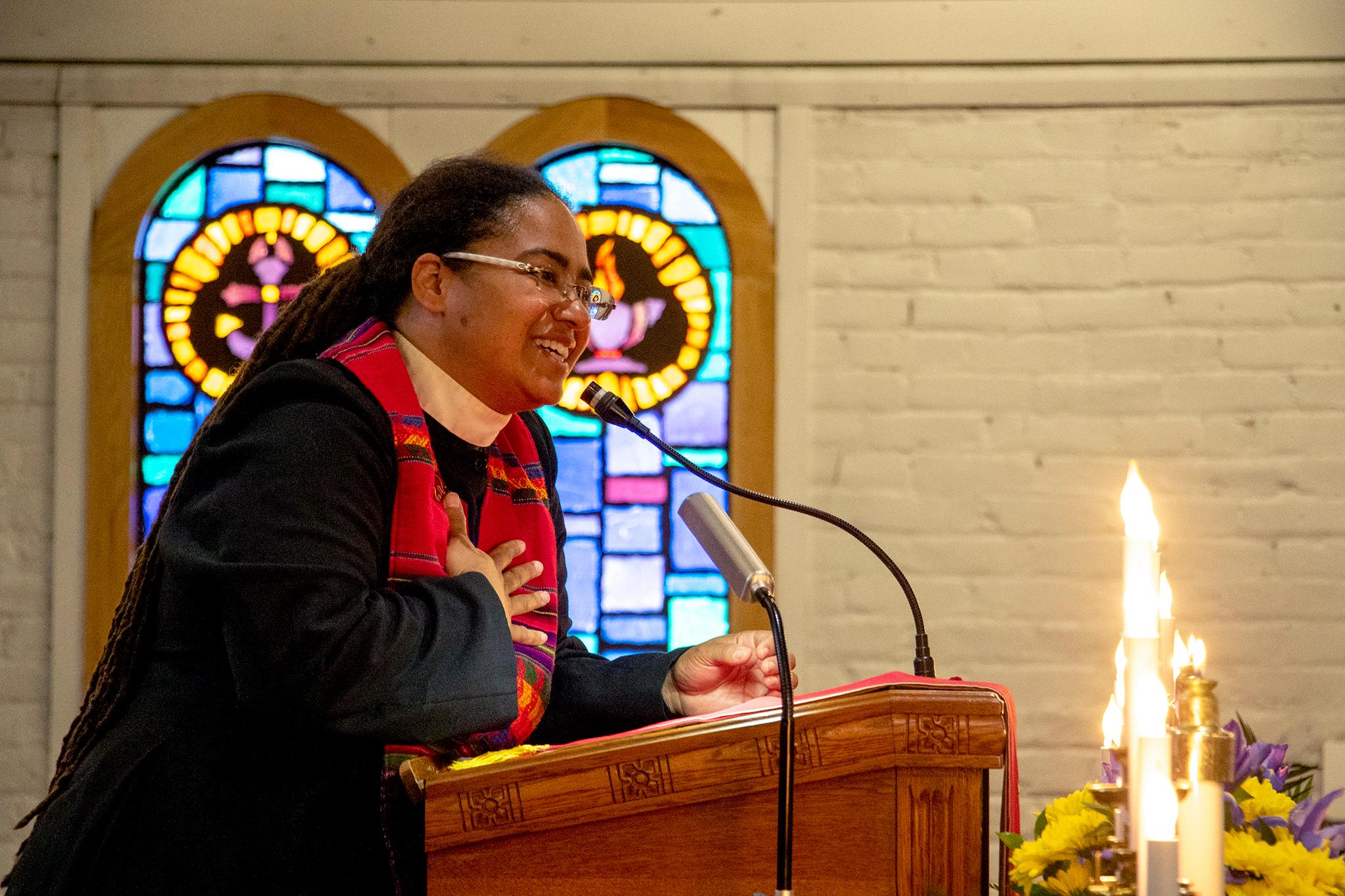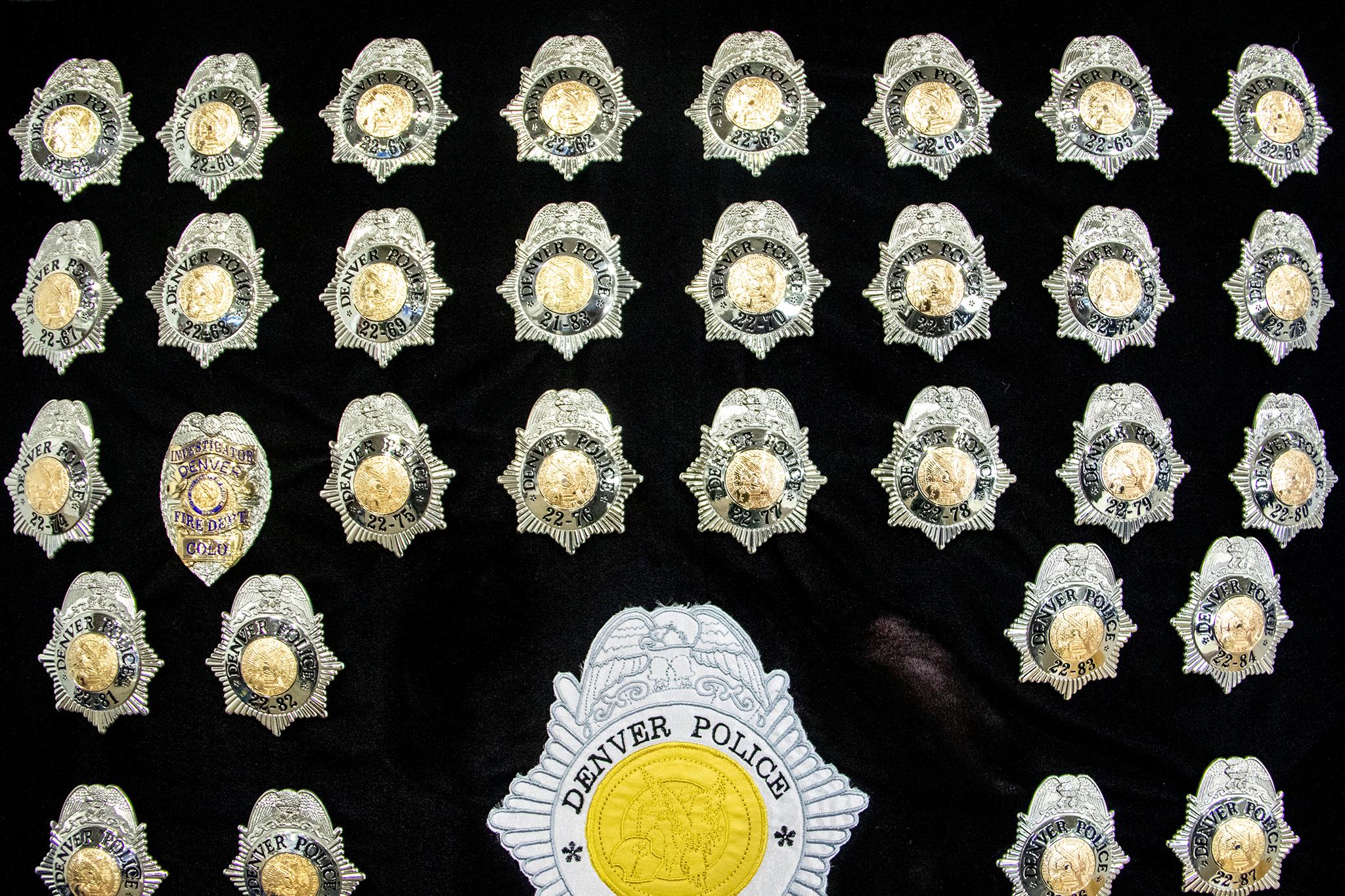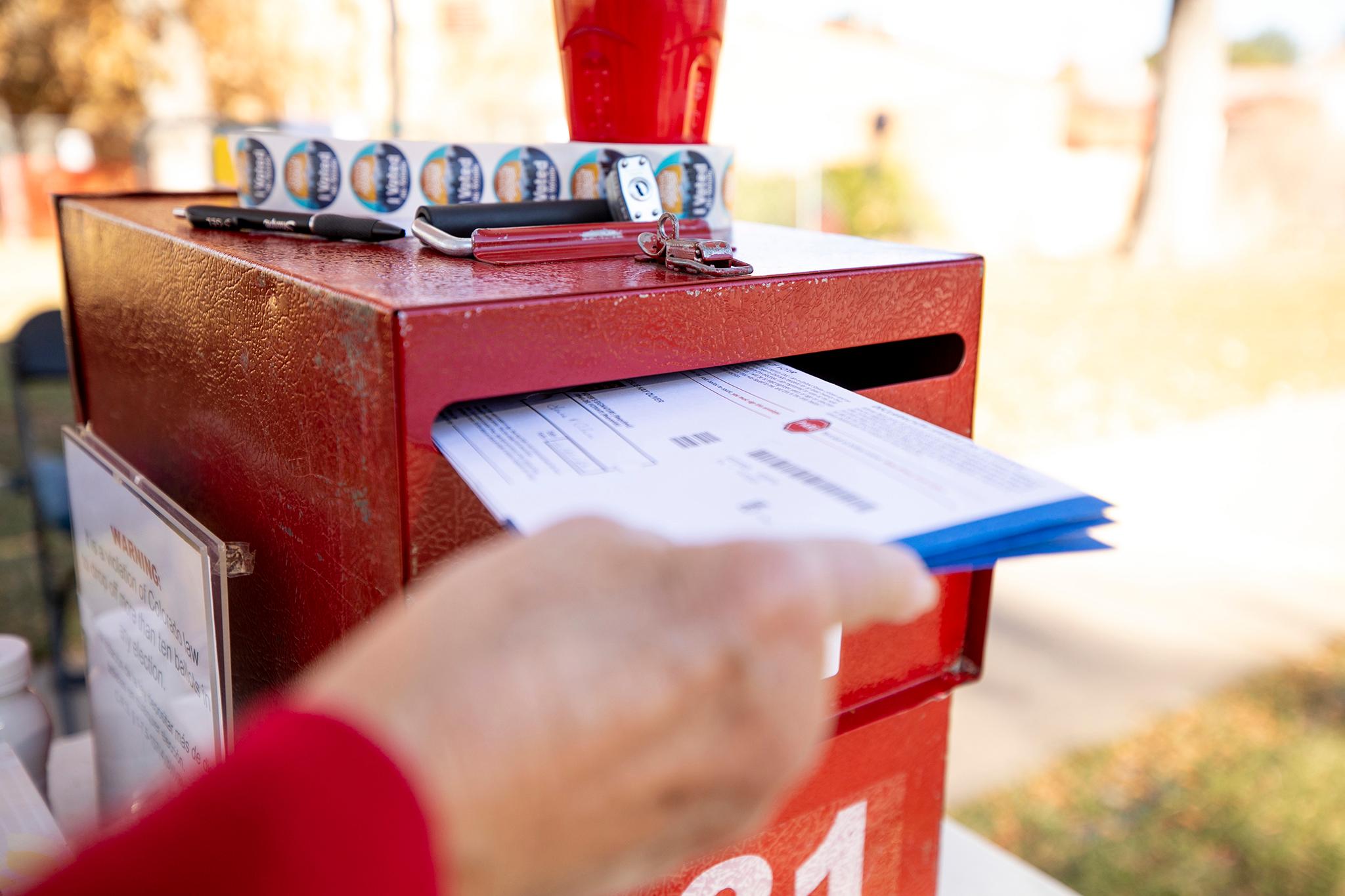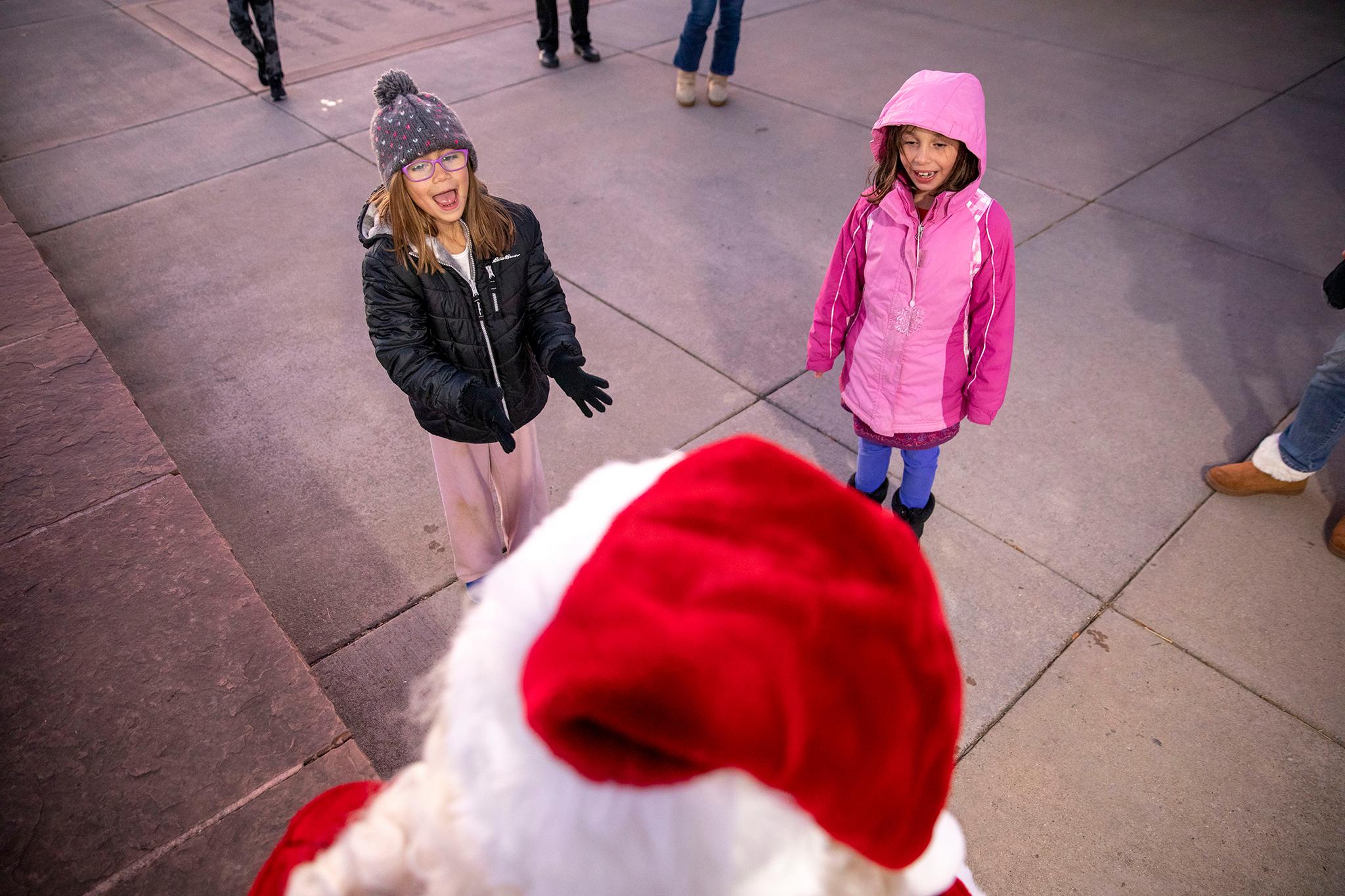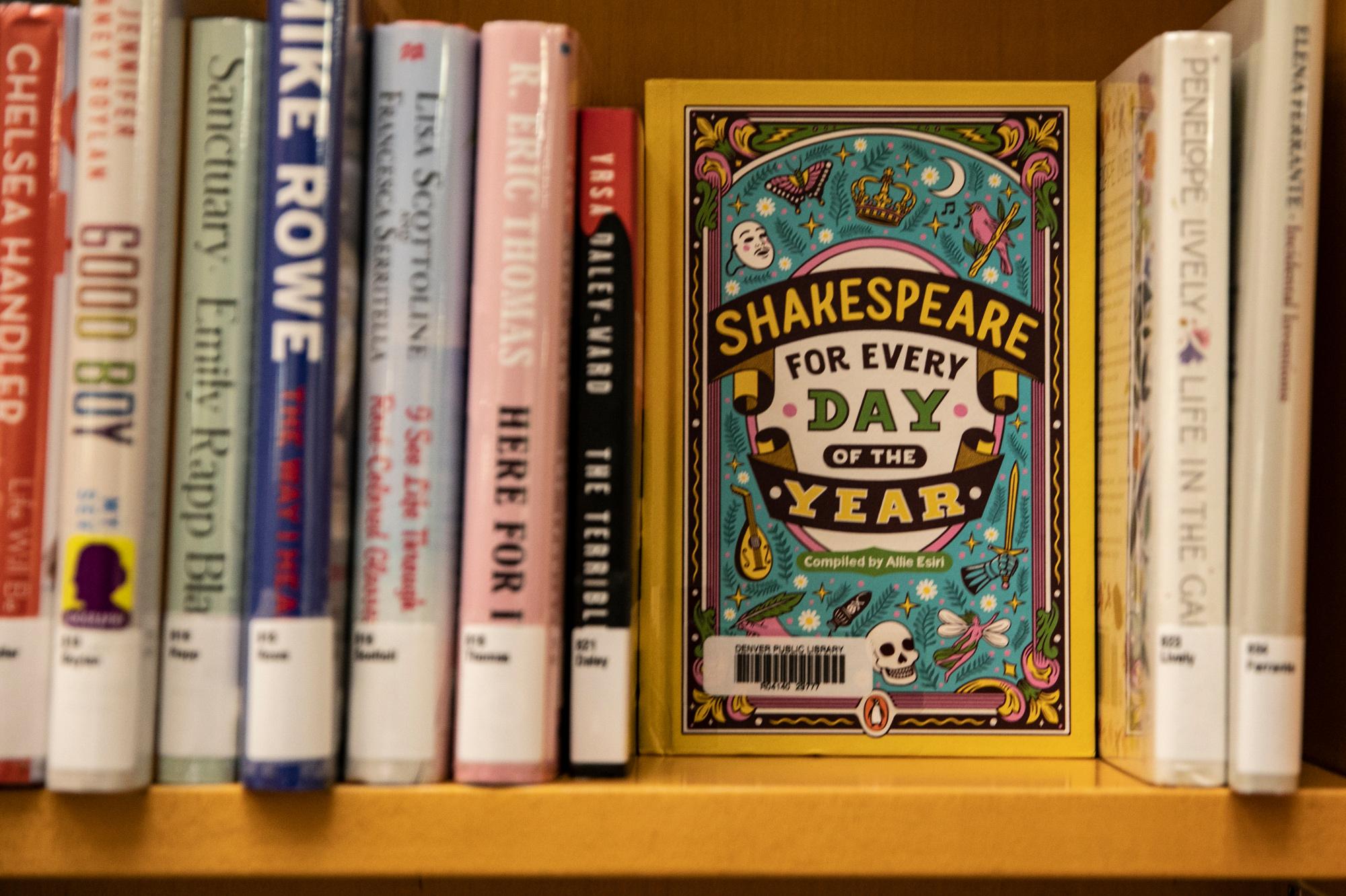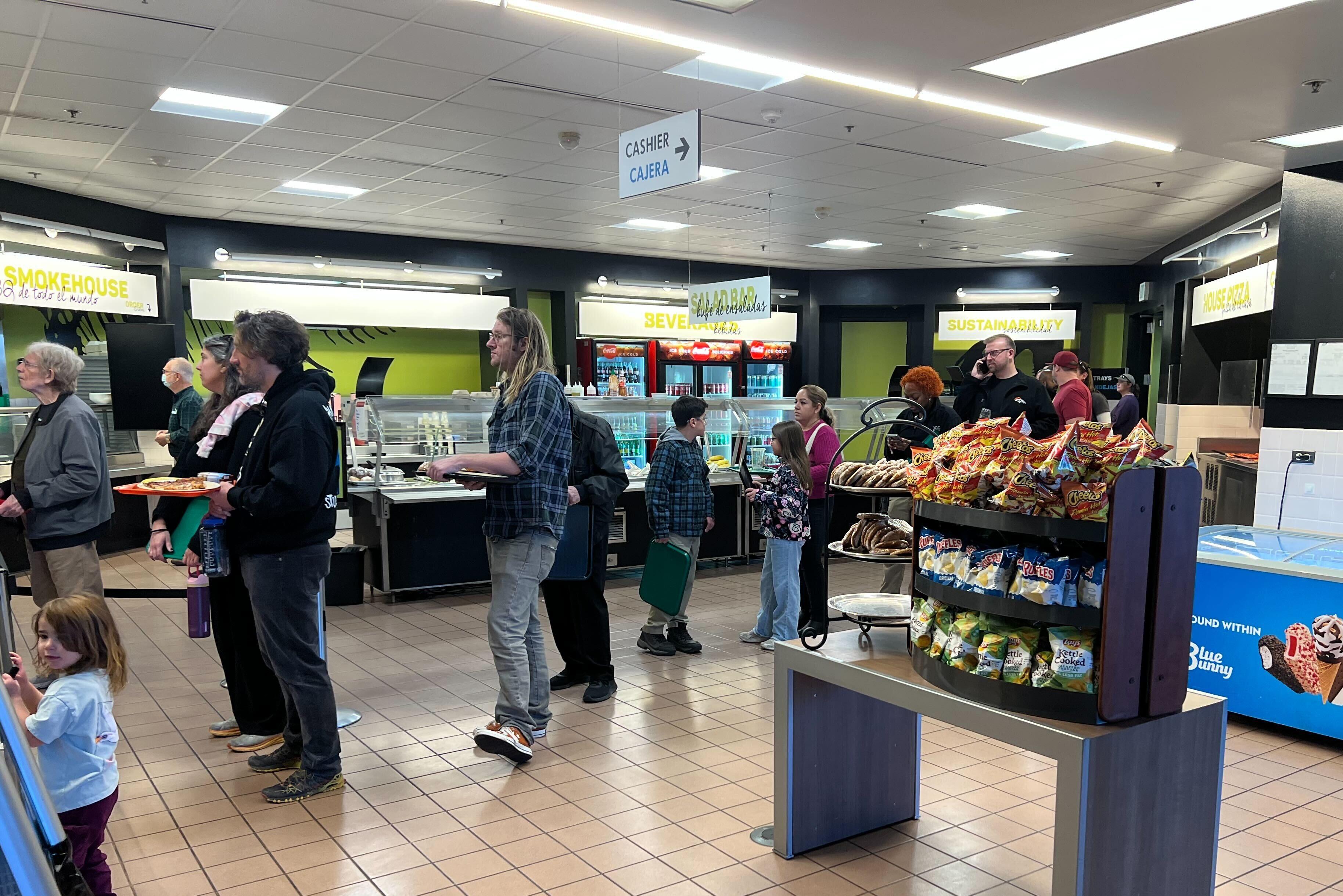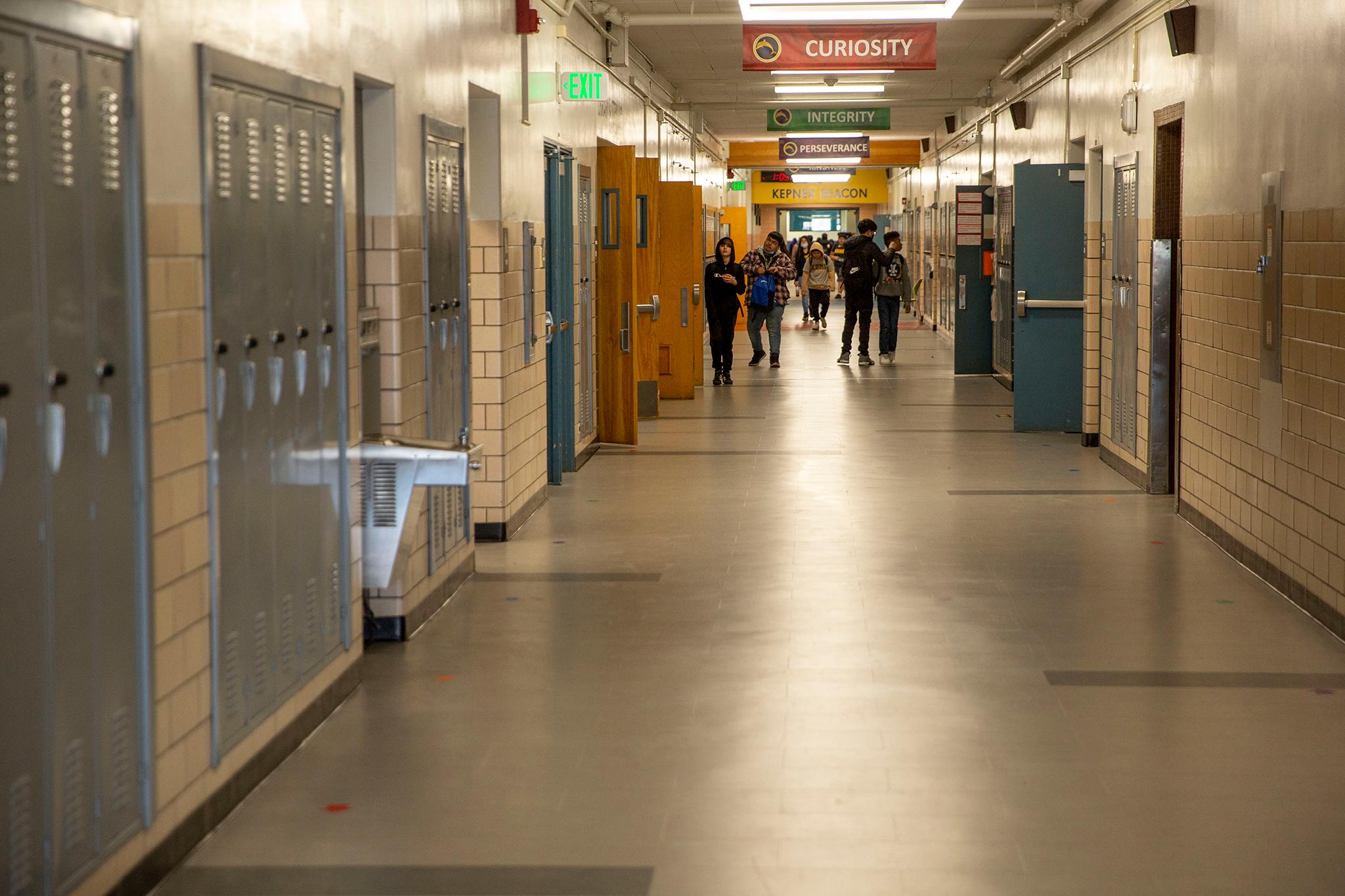The Pentecost is a day of celebration, marking what is seen as the start of Christianity's spread from the Middle East around the world.
This Pentecost, though, was a day of lamentation for some men and women of faith. In services held online because of the coronavirus, pastors led their congregations in contemplation of the death of a black man under the knee of a white police officer in Minneapolis, and of the sometimes violent protests the killing has sparked in Denver and across the country.
Rev. Jennifer Leath of Campbell Chapel African Methodist Episcopal Church in the City Park West neighborhood wore a red T-shirt emblazoned with the words "black and holy" as she live-streamed to her congregation, calling for prayers for George Floyd, the man who died in Minneapolis, "and so many others gone."
Leath said she saw desperation in protesters' willingness to crowd the streets despite the pandemic, risking contracting a disease that has hit African-Americans disproportionately hard.
"What do we do when we're not convinced that our shouts matter anymore, that our tears matter anymore, that ever did our bloodshed matter to anyone?" Leath said in a sermon during which she was sometimes so passionate she could not stand still.
"Our hearts are distraught with the continued, perpetual onslaught of racial violence, day in and day out, that crushes us and suffocates us."
Leath assured her congregation that God sees all men and women as equals. She ended her sermon singing to the tune of soul singer-songwriter D'Angelo's "May I? Stand Unshaken," her words offered as a balm: "On this day of Pentecost may the Holy Spirit strengthen each of you."
In an interview earlier, Leath portrayed the protests of recent days as an expression of faith.
But "I have been concerned that protests have not been effective for a long time," said Leath, who also is an assistant professor of religion and social justice at Denver's Iliff School of Theology.
Instead, she suggested a kind of "cyber warfare" that could include monitoring and responding to racist commentary on forums such as Breitbart, "making sure that we're on their sites, offering different perspectives."
"That's very much where the fight is taking place," Leath said. "It's taking place in the hearts of people."
A fellow Denver pastor, Robert Woolfolk, said Dr. Martin Luther King and Mohandas Gandhi taught "us that we don't fight violence with violence. We fight violence with love."
The violence that has escalated with each day of protest in Denver has troubled Woolfolk.
"Not everybody is spiritual, and that's why we end up in this situation that we're in," Woolfolk, who has led Five Points's Agape Christian Church for decades, said in an interview.
Woolfolk also spoke of what he sees as the broader implications of Floyd's death.
"I've been thinking about it and I've been praying about it," Woolfolk said. "It affects all of us black men, black women, how we are treated in America."
"We get angry when someone perpetrates violence against us."
In a weekend statement, Denver's Catholic archbishop called for prayer.
"I encourage the faithful of the archdiocese to examine our consciences on how we promote a culture of life on all levels, to pray for the conversion of hearts of those who promote racism, to pray that our society may return to a culture of life, and finally and most importantly, to pray for the repose of the soul of George Floyd, for his family in their loss, and that justice may be served in his case," Archbishop Samuel J. Aquila said.
Nathan Adams, lead pastor of Denver's Park Hill United Methodist Church, had recently reached out to members of his multiracial church about the killing of another black man, Ahmaud Arbery. Authorities say Arbery was was jogging outside Brunswick, Georgia, in February when two white men, Gregory McMichael and his son Travis McMichael, chased him. Arbery was shot three times. Gregory McMichael and Travis McMichael were arrested only after video of the killing surfaced in early May.
Adams, who is black, wrote in a church newsletter about being a jogger as Arbery was, and worrying about being seen as a criminal or a threat when he is running. Gregory McMichael told officers that he thought Arbery looked like a person whom they suspected in break-ins in the area.
"I am almost always aware and questioning how others might be viewing me as I run by them," Adams wrote.
Adams referred to his newsletter comments during his Pentecost sermon. Earlier in the service, his fellow pastor, Angie Kotzmoyer, was tearful as she prepared to lead the online congregation in the Lord's Prayer.
"It's been a hard week in America," said Kotzmoyer, who is white. "I feel for all of our black and brown brothers and sisters know that as a white person, I know that we need to do better."
Adams said Sunday that when he wrote about Arbery he had not imagined he'd be so soon again discussing "another reminder and an example that our lives really don't matter. They do. But it doesn't feel like they do."
Addressing white parishioners, Adams said black and brown Americans were "exhausted. We try to tell you our stories and so oftentimes you dismiss us."
"We're exhausted. We're fearful. We're angry," Adams said.
He said the Bible texts chosen for Park Hill United Methodist Church's Pentecost service were not the usual celebratory passages from Acts describing people coming together to hear the word of God. Instead, a colleague, Amener Williams, had read the cautionary words of the prophet Amos: "In all the squares there shall be wailing; and in all the streets they shall say, 'Alas! Alas!'"
Adams noted that a line from Amos is perhaps best known because King quoted it in his letter from a jail in Birmingham, Alabama, responding to white clergy who had criticized his campaign of resistance: "Let justice roll down like waters and righteousness like an ever flowing stream."
King called Amos "an extremist for justice." Adams ended his sermon with a prayer in which he called the day an opportunity to go out and to seek God's "justice with the way that we live our lives."

